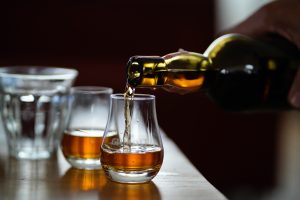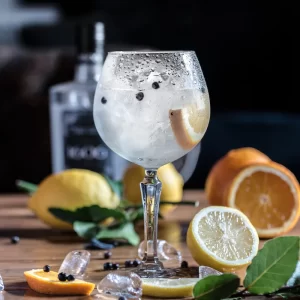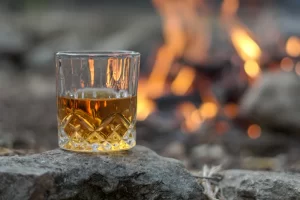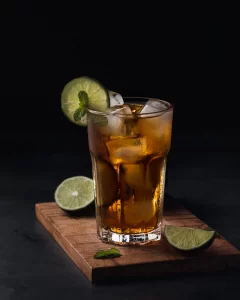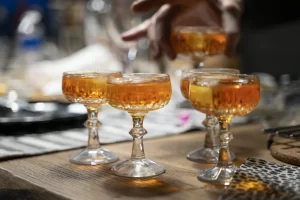Maine Liquor Laws And Regulations
The legal age to consume and purchase alcohol in the state of Maine was instituted in 1987 at 21. However, Maine liquor laws require an ID for anyone who looks to be under the age of 27 so it helps if you carry such identification if you look significantly younger than your actual age.
It may seem odd yet the liquor laws in the state require an individual to be 17 or older to be a server in a licensed establishment. There is also no distinction between beer, wine, and distilled spirits like there is in other states.
In this guide, we will detail the liquor laws and regulations in Maine. This will look at the general laws and regulations, the state fees, and the licensing requirements/distillery restrictions.
General Liquor Laws And Regulations In Maine
Anyone under the age of 21 can drink an alcoholic beverage in a private residence, as long as a parent or guardian is present. Maine is a state that does seem to look to teach the young about drinking in moderation though it is illegal for anyone under the age of 21 to purchase alcohol.
Using a false ID is, expectedly, a criminal act, as is selling, lending, or transferring a false ID to buy alcohol and any retailer that suspects that an ID is false can seize it. Finally, it is a criminal offense for any driver under the age of 21 to drive with any alcohol in their system.
The liquor laws and regulations in the state of Maine make it a crime to sell alcohol to anyone under the age of 21. When convicted, such an offense comes with a prison sentence of 364 days and a fine of up to $2,000 with surcharges to be added.
There is an even higher penalty should a customer drink and then cause serious bodily injury, or kill, another person. That offense comes with a five-year prison sentence and a fine of $5,000 with surcharges and two years probation.
More specific liquor laws and regulations that apply in the state of Maine include that it is illegal to sell alcohol to an individual who is visibly intoxicated. It is also illegal to sell alcohol between 1am and 6am from Monday through Friday, as well as from 1am to 9am on Sundays.
While bars and restaurants can only sell two drinks at any one time to a customer, retail stores that have a liquor license can sell beer and table wine up to a 15.5% ABV.
State Fees
A liquor license is issued to bars, restaurants, liquor stores, and several other establishments to legally sell alcohol which means filling in application forms for on-premise, retail, and off-premise purposes. The cost of each license varies depending on the type as there are server licenses, and those for bars and restaurants.
These licenses will be regulated by the state and in Maine, the filing fee is $10. Without a valid liquor license, these establishments cannot sell or distribute alcohol legally.
Once the application is submitted and the required fees are paid then a background investigation is completed for processing. The inspector will then create an appointment to inspect the premises applying for the license and issue a temporary license to allow the purchase and sale of liquor.
After approval is granted, there are routine inspections of the licensee’s premises to ensure that compliance is met including a liquid inventory, checking the presence of a posted liquor license, and the records of the business.
Licensing Requirements/Distillery Restrictions
 There is a $10 filing fee and a $100 license fee for an instate manufacturer like a small distillery in the state of Maine though the license fee goes up to $1,000 for wineries, distillers, breweries, rectifiers, and bottlers.
There is a $10 filing fee and a $100 license fee for an instate manufacturer like a small distillery in the state of Maine though the license fee goes up to $1,000 for wineries, distillers, breweries, rectifiers, and bottlers.
The application for a distillery is relatively straightforward and does include a page for drawing the manufacturing facility or floor plan to provide an accurate description of the distillery. There is also an additional annual fee of $75 should the distillery wish to attend a farmer’s market and 30 days’ notice must be provided.
A small winery, brewery, and distillery can expect to pay a license fee of $50 for each location. For retail on-premises licenses like hotels, restaurants, and taverns, the license fee is $900 for Class 1 spirits, wine, and malt liquor, $550 for Class II (spirits only), $220 for Class III (wine only), and $220 for Class IV (malt liquor only). For hotels that do not serve food, there is Class I-A which is $1,100 and covers spirits, wine, and malt liquor.
Clubs as well as bed and breakfasts without catering privileges have to apply for the Class V license which has a fee of $495. Class A lounges that want to serve spirits, wine, and malt liquor have the Class X license to apply for, at a cost of $2,200. However, Class A restaurants/lounges can apply for a Class XI license to serve spirits, wine, and malt liquor where the fee is $1,500.
Final Thoughts
There are some other liquor laws and regulations that should be considered in the state of Maine. For instance, alcohol is strictly illegal in state parks while it is also illegal to drink alcohol in a public place once a law enforcement officer has informed you not to do so.
The public is also forbidden to drink in public within 200 feet of any sign prohibiting it. Alcohol cannot be given away as a prize and it is not legal for drinking games to be played in bars or restaurants.
Frequently Asked Questions
What Are The License Fees For Off-Premises Locations In Maine?
For an off-premises retailer who wants to sell alcohol with a qualifying stock of groceries or ‘compatible merchandise’, there are two options. The Class VI license covers malt liquor and costs $200, while the Class VII license covers wine and also costs $200. For an agency liquor store, the license fee is the Class VIII one for malt liquor, wine, and spirits where the fee is $700.
What Is Meant By Maine As A Government Monopoly State?
As a government monopoly state, Maine looks out for the sale of spirits. That includes the likes of rum, bourbon, vodka and scotch while it also has a monopoly on wine sales that have an ABV of 15.5% or more. This is the alternative choice to maintaining prohibition and follows free enterprise rules that are regulated by law.
Over a quarter of the US population reside in monopoly jurisdictions which control the wholesale and retail sale of alcohol in any form.
